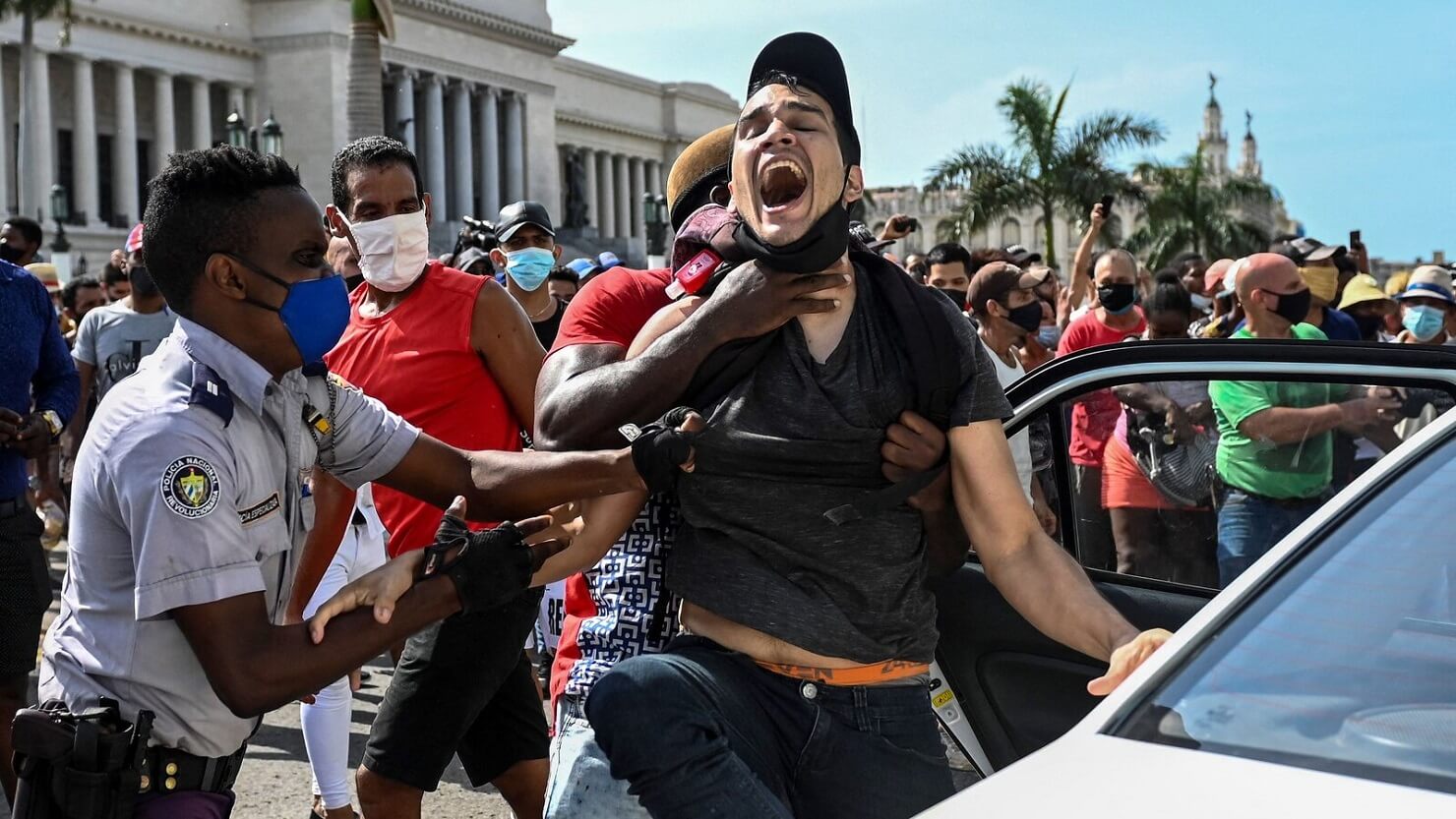On Monday, the Cuban Attorney General’s office sanctioned 381 citizens, including minors, on charges of sedition, public disorder, sabotage, robbery, violence, and contempt of authority, alleging that their participation in the July 2021 protests “threatened the constitutional order and stability” of the state.
Of those punished, 297 have been arrested—36 citizens on sedition charges—with sentences ranging from 5 to 25 years. The People’s Courts have thus far finalised 76 of these verdicts following appeals by the defendants.
The remaining citizens were let off with lesser charges on the “condition of good conduct,” 15 of whom were between 16 and 18 years old. Cuba’s age of criminal responsibility is set at 16 years.
It has warned that any “breach of [these] obligations” will lead to a withdrawal of the more lenient punishment and instead result in imprisonment. The Attorney General’s office underscored that all the punishments are geared towards ensuring the “reinforcement of values” and the “rectification of conduct” through “educational, coercive, and preventive” measures.
However, these figures don’t match those provided by rights groups, such as Cuban Prisoners Defenders, which claimed in a report last month that at least 168 protesters have been charged with sedition, and that upwards of 1,000 people have been arrested over the protests last July.
#Cuba tergiversa los datos
— Prisoners Defenders (@CubanDefenders) June 13, 2022
Sólo mencionan los casos "de 76 sentencias"
Ni mencionan a cientos de condenados del #11j languideciendo en prisión, SENTENCIADOS a muchos años, y que ni mencionan en esta nota
Ocultan la verdad, ya no engañan a nadiehttps://t.co/xEiC82kVO0#11JCuba
Similarly, 11J has claimed more than 500 people have been tried and convicted over the demonstrations. In fact, the government itself revealed back in January that it had charged 790 people, including 55 under the age of 18. 11J, however, claims that the government detained at least 1,300 people.
In a report last October, global rights group Human Rights Watch (HRW) accused the Communist government of carrying out “arbitrary detention, ill-treatment of detainees, and abuse-ridden criminal prosecutions.”
Juan Pappier, HRW’s Americas researcher, lambasted the Cuban state over its “brutal strategy of repression designed to instil fear and suppress dissent,” adding that critics of the government were illegally detained, “abused in horrendous conditions, and subjected to sham trials.”
When people say “You have to go to Cuba before it changes!” do they mean you should visit before it stops being an authoritarian regime that persecutes people for taking part in pro-democracy protests?
— Aitor Hernández-Morales (@aitorehm) June 14, 2022
There’s more to the place than vintage cars, folks.https://t.co/gxaEE3ynu7
Questions have also been raised over the credibility of prosecutions, as witnesses in trials have often been police officers, state security agents, and Communist Party officials.
On July 11 and 12 last year, thousands of citizens rallied against the government amid a severe economic crisis to protest against shortages of food, medicine, and electricity, rising prices, the slow pace of the COVID-19 vaccination programme, and general economic conditions. Demonstrators chanted “down with the dictatorship,” “we want liberty,” “we are no longer afraid,” “we want vaccines,” “enough,” “freedom,” and “unite.”
The protests marked a historic occasion in a country where such anti-government demonstrations are extremely rare, with the last such protest taking place in 1994.
The government, however, claimed that the protests were sponsored by the United States and Cuban Americans and alleged that they had hired mercenaries to “provoke destabilisation.”
I condemn the mass detentions and sham trials that are the Cuban regime's efforts to threaten the Cuban people into silence. My Administration stands with the Cuban people, and is imposing new sanctions targeting those in the Cuban regime responsible for this crackdown.
— President Biden (@POTUS) July 22, 2021
Meanwhile, the Prosecutor’s Office said that “as a consequence of the violence generated, goods were looted and stolen, causing considerable damage; likewise, means of transport were besieged, overturned and damaged.”
The US, however, denied any involvement in the demonstrations, with President Joe Biden blaming the government for “mass detentions and sham trials” aimed at intimidating “the Cuban people into silence.”
Though it has relaxed certain sanctions related to visas and travel freedoms, the Biden administration has kept in place a trade embargo on Cuba that has been in place since 1962 and refused to remove its state sponsor of terrorism designation that was imposed under Donald Trump. More recently, it barred the country from attending the Americas Summit in Los Angeles last week over its poor track record of human rights.

